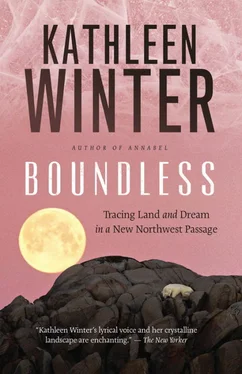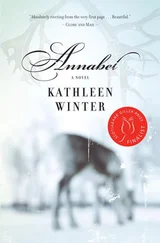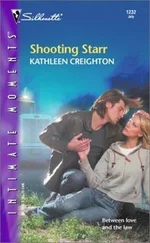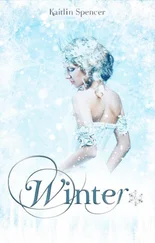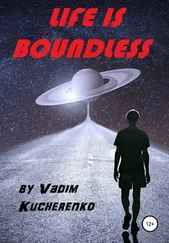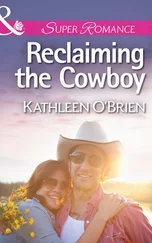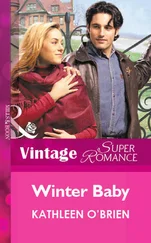The snipe’s call echoed the sadness of our life there, which, while beautiful in its simplicity, was spoiled by the fact that my husband was dying and our relationship had turned into one of many disappointments. In winter the pond behind our house froze and we skated in the moonlight: my last memories of our marriage are of James, in his overcoat and fur hat, walking on that ice, his daughter and I skating freely while he grappled with leaving all he loved, though much of it had departed from him before he died.
I walked miles behind that house. Songs came to me, and I sang them beside stones to which my daughter and I gave names, graceful stones that had personalities. On a boggy trail up the mountain I hunkered beside bog orchids, marvelling at the veins in their lobes, and I learned the names of plants like the blue-bead lily and the almond-scented twinflower, Linnaea borealis . I had not forgotten the visionary glimpse of reality I’d sensed in my youth, the feeling that the ordinary world, with its plants, stones, and people, became infused with a kind of glory that then retreated or hid. It had not come to me lately, and I’d begun to fear it had been a passing blessing of youth. When I was young I’d seen jaded people, bitter and disillusioned, and I’d vowed not to become like them. But it was hard, during poverty and illness, not to lose hope in that early intimation of glory, whatever it had been.
My disappointment made me hard to live with. I knew there were books that exhorted one to bloom where one was planted, to embrace the Zen of dying husbands and unwashed dishes and a well that froze in January and dried in August. But where was the book that would show me a map to the end of hardship? Whenever I could escape household duties I walked, ran, and wept in those trails in the woods, asking sky, alders, and water to talk to me, to bring me back that hint of something majestic and all-encompassing.
A pair of doves with blood-red drops on their necks cooed under our window. I kept a few hens, and wild partridges visited them at dusk, roosting in our birches. A boreal owl made his home in the black spruce across the stream, and there were loons. The marsh hid a family of ducks that local hunters kept trying to find; each spring there were new ducklings. I listened to all the birds, and to the wind, and I suppose they were talking to me, but at the time I did not feel spoken to. I beseeched whatever life was in that outdoor world, whatever Great Spirit might reside there, to teach me something, anything at all, any scrap of wisdom, or insight, or comfort. I sensed secrets ebbing and receding, and begged them to show themselves. But I was clamouring on the edge of a silent and unyielding bell.
It frustrated me that life had become much harder: that motherhood, poverty, and illness meant I no longer had energy or vision to ask any question larger than whether or not my hens had laid eggs for dinner, whether I could thaw the pipes leading from the well, or how long it would take for my green firewood to give heat instead of smoke that permeated the kitchen and made it impossible for us to stop coughing. I had a guitar and a couple of notebooks filled with lyrics, and if there was one song that epitomized how I felt then, between visits to food banks and the hospital, it was Stephen Foster’s “Hard Times”:
’Tis the song, the sigh of the weary,
Hard times, hard times, come again no more
Many days you have lingered around my cabin door;
Hard times, come again no more.
Someone had given our name to agencies that gave out Christmas hampers, and we were given three turkeys, but had nothing to eat with them. When I tell my second husband about the turkeys, he says, “Why didn’t you trade two of those turkeys with someone else, for some vegetables and bread and cake?” which seems like a sensible idea. But we cooked and ate the three turkeys, and when the last one was gone, we received a supper invitation from a Samaritan who did not know us well, but who must have known there was a dying man in the house and must have guessed we were hungry. She lived alone and was still working on the remains of her own turkey. She served us turkey soup, and I suppose she still thinks my tears on her tablecloth were tears of gratitude.
When James died, a pall lingered. I had loved the little house we’d called our gypsy caravan, but it contained shadows from which I needed to free myself. This took time and involved shedding objects that had accumulated in hidden corners. One corner in the basement held many pieces of sadness: papers and paintings and mementos connected with James, along with special clothes he had loved. Anything I’d thought important to save for his daughter or his closest friends and family, I had saved and given. But there remained boxes and chests that contained dark and powerful memories, and before I could leave that house I had to do something with them.
“What you need,” said Christine, my brother Michael’s conjointe , as they say in Montreal, “is a Viking funeral.”
“A what?”
“You gather the things, you bring them to me out in Western Bay. We build a raft for it all and get our dory and tow the raft out in the bay and set fire to it. I’ll row you out.”
There was something so final and beautiful about this. I said yes.
At sunset I showed the last few things to Christine and to the little procession that had formed to see everything float and burn.
“What about this? It’s his wolf-fur hat.”
“Burn it.”
“And this? A copy of the Declaration of Independence on parchment that he made when he was into calligraphy.”
“That’ll flare up nicely.”
“What about his medieval waistcoat?”
“Throw it on the heap.”
Christine was a perfect boatman. In her pocket she had a mickey of vodka she’d chilled in the freezer, and every few minutes she handed it to me and I took a deep ceremonial swig. There was no doubt in her form or in her bearing about what we were doing. She looked as if she had been the boatman for hundreds of Viking funerals. The onlookers, too, looked as if they had attended this sort of occasion for millennia — especially the children, who did cartwheels over the wild grasses which grew brighter and brighter green under the reddening sky. By the time we’d hauled the raft down to the beach, the sky was mauve and stars had come out. Christine had a bottle of lighter fluid in another pocket. She poured a hefty dose over James’s possessions, then we climbed in the dory and the crowd pushed us out into the water.
It felt great to float. I had total faith in Christine, in her ability to permeate James’s things with flame accelerant, in her taste in vodka, and in her oarsmanship. Now it was just the two of us, and the brooding sky, and the lovely, lapping, undulating salt water. I had never felt the rightness of any destructive activity as strongly as I felt the rightness of this one. In the dark we could still see our friends on the beach — small now, as we were far out in the bay.
“I want you to think about everything you want for the future,” Christine said. “And I want you to think about how thoroughly you’re letting these things from the past go. How great that is, and how it will free you.”
Her oars swished and dripped and I loved that sound, and I loved what she said. She has long, brown hair and light from somewhere lit parts of it, and she is tall and strong. I felt I was in the hands of someone who knew what she was doing, even if only for the duration of this operation.
“Okay,” I said.
“I’m going to soak the things in some more lighter fluid,” she said, “and here are the matches. When you’re ready, light the pile.”
She gave me the matches and I lit one and held it to some of the papers. They weren’t James’s diaries — ’d saved those for his daughter — and they weren’t our old love letters, which I still have in a black bag. But he’d kept carbon copies of radio plays he’d written, and copies of his newspaper articles about art, and research materials on the Shroud of Turin and Richard Brothers and the British Israelites and liner notes from vintage Gregorian chants and other things like that which depressed me and drove me a bit nuts and which I never wanted to see again as long as I lived. I lit the papers.
Читать дальше
